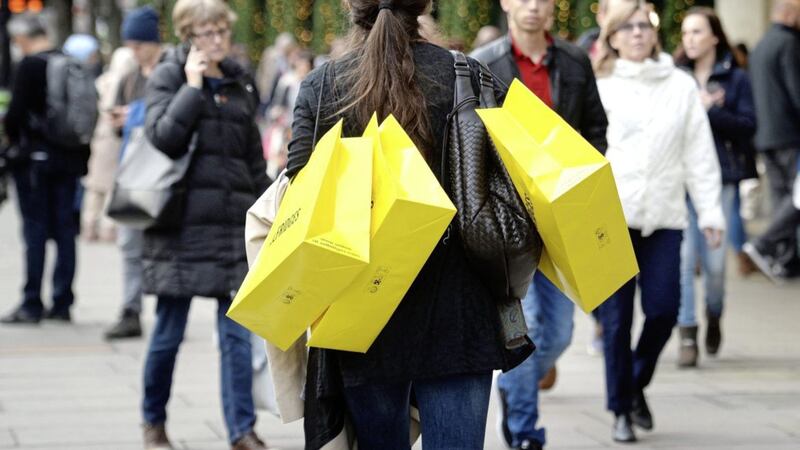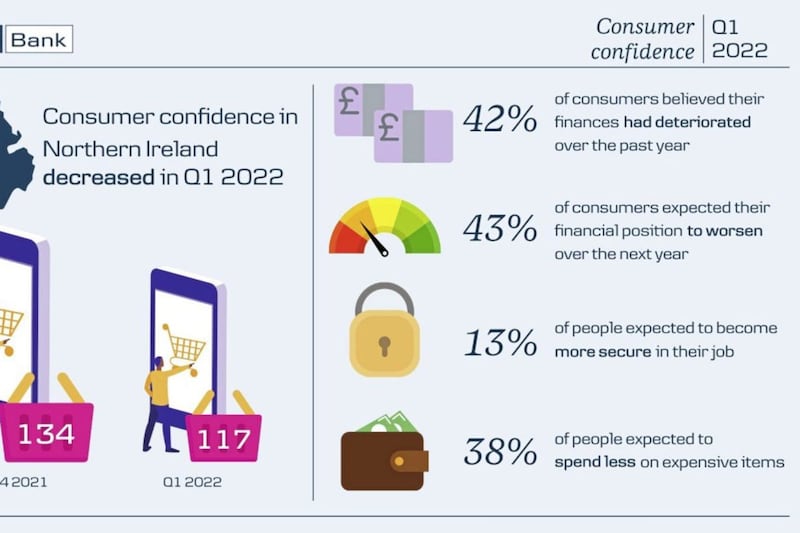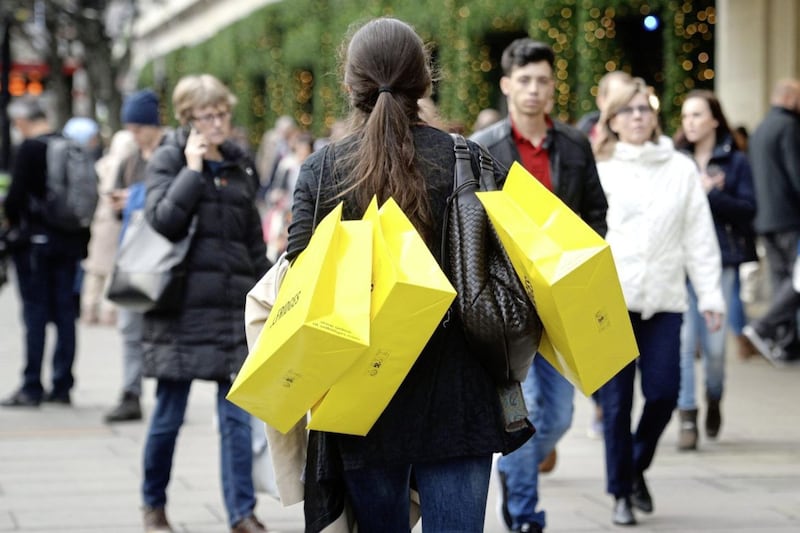PEOPLE in Northern Ireland seem happier with their lot and are back spending again, according to Danske Bank's latest consumer confidence index.
Its quarterly bellwether of consumers' spending habits, current financial position and their perceptions of their own job security indicates a significant rebound in the January to March period.
The index registered a reading of 142 in the first quarter, a significant increase on the final three months of 2017, and even slightly higher than the same period last year.
“Compared with the end of last year, consumers are now feeling more confident about their current financial position, how they expect their financial position to change, their job security and the amount they expect to spend on big ticket items,” Danske Bank chief economist Conor Lambe said.
“Eighteen per cent of consumers highlighted low interest rates as the factor that had the biggest positive impact on their confidence levels, while 10 per cent signalled that rising house prices made them feel more confident.
"But despite the sharp rise in our consumer confidence index, almost 40 per cent of people weren’t sure which individual factor had the biggest positive impact on them."
He added: “As has been the case for a number of quarters now, more than 30 per cent of consumers we surveyed continued to identify political uncertainty and the lack of an Executive as the factor that had the largest negative impact on their confidence levels.”
The latest data showed that men felt more confident than women with regards to their current financial position. Some 22 per cent of men felt better off than they did a year ago, compared with 16 per cent of women, while 22 per cent of women felt worse off than 12 months ago, compared with 19 per cent of men.
The component of the index that examines households’ expectations of how their financial position will change over the next twelve months increased over the quarter and over the year.
Mr Lambe said: “The latest data shows that inflation in the UK fell from three per cent in December to 2.5 per cent in March. This is good news for consumers as it likely signifies the early stages of the household spending squeeze easing.
“However, a word of warning still needs to be sounded. Households are likely to continue to face some pressure as any returns to positive real wage growth are expected to be modest.
"While consumer spending growth rates in Northern Ireland are expected to rise slightly, they are forecast to remain below 1 per cent in 2018 and 2019.”
Full-time workers felt more optimistic about their job security than part-time workers (only six per cent of full-time workers thought their job is at risk compared to 11 per cent for part-timers).
As regards spending on high value items such as furniture and holidays, 24 per cent expect to spend more over the next year, though 19 per cent intend to cut back.







